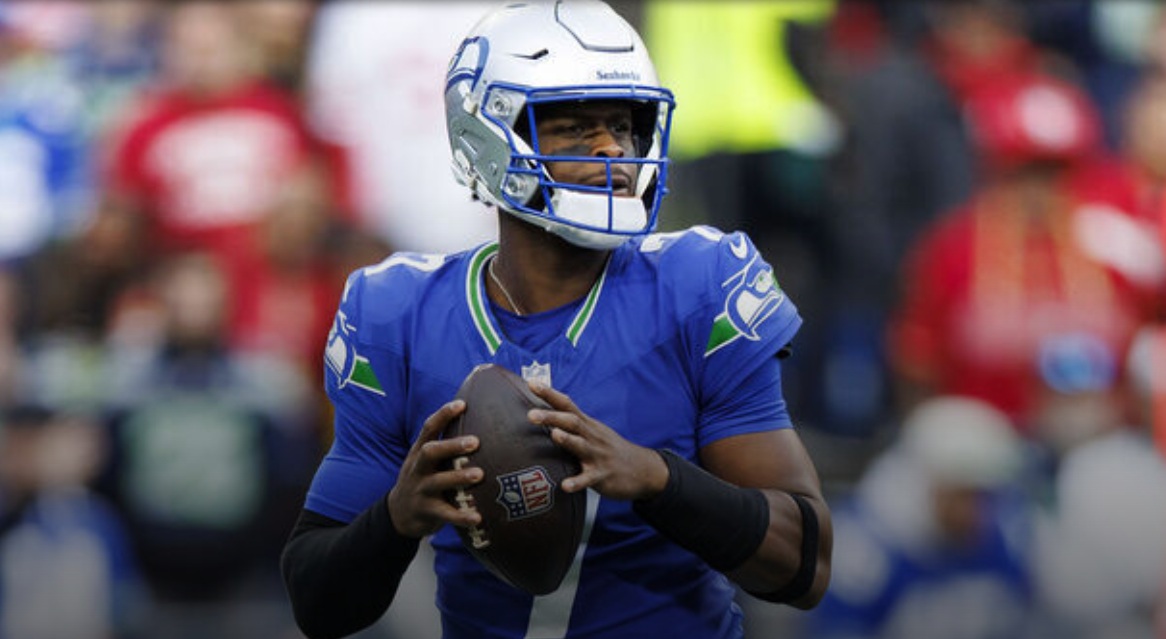Sports journalism, much like the games it covers, is in a constant state of evolution. As we embrace the digital age, the landscape of sports reporting is undergoing a seismic shift fueled by advancements in technology, changing audience preferences and the globalization of sports events. In this evolving arena, journalists find themselves at the forefront of innovation, navigating new challenges while harnessing the power of emerging trends.
Here is a closer look at the future of sports journalism and the transformative trends and formidable challenges that await the industry. From the integration of cutting-edge technologies to the quest for credibility in an age of misinformation, we will explore how sports journalists are adapting to meet the demands of a dynamic and diverse audience.
A technological revolution in sports journalism
The future of sports journalism is intrinsically tied to the burgeoning world of technology, where innovation is reshaping the way news is reported and consumed. Virtual reality (VR) and augmented reality (AR) are revolutionizing the fan experience, allowing audiences to immerse themselves in the heart of the action from the comfort of their homes. Sports journalists are no longer merely storytellers; they have become curators of unforgettable experiences, using VR and AR to transport fans to the sidelines of a thrilling match or the inner sanctum of a team’s locker room.
Additionally, artificial intelligence (AI) has emerged as a game-changer in data-driven sports reporting. AI-powered algorithms can swiftly analyze vast amounts of data to extract valuable insights, enabling journalists to present in-depth statistics and trends that were previously challenging to access. This technology not only enhances the quality and accuracy of sports reporting but also empowers journalists to uncover hidden narratives that resonate with sports enthusiasts worldwide.
Redefining audience engagement and sports consumption
The integration of new technologies in sports journalism is fundamentally altering the relationship between sports enthusiasts and the games they follow. With mobile devices becoming the primary gateway to information, sports journalists must find ways to captivate audiences amid the overwhelming influx of content.
Social media platforms are thriving arenas for real-time sports updates, making speed and accuracy paramount. Short-form content, engaging videos and interactive storytelling are becoming essential tools for capturing the attention of modern sports fans. Sports journalists must continuously innovate their reporting styles to cater to the preferences of an increasingly tech-savvy audience while simultaneously staying true to the core principles of compelling storytelling and factual reporting.
The rise of mobile journalism in sports reporting
Mobile journalism has transformed the way sports news is captured and disseminated. Armed with smartphones equipped with high-quality cameras and editing tools, sports journalists can report from the heart of the action, providing real-time updates to their audiences. Whether it’s on the sidelines of a thrilling match, amid post-game celebrations or at a press conference held by a sports superstar, mobile journalism empowers journalists to be agile, responsive and adaptive. The immediacy of mobile journalism not only allows for timely coverage but also grants sports enthusiasts an unprecedented level of access and intimacy with their favorite teams and athletes.
Social media’s impact on sports reporting and fan engagement
In the digital age, social media has emerged as a game-changer for sports journalism. Platforms such as X (previously known as Twitter), Instagram and Facebook serve as real-time news hubs, connecting sports journalists directly with their audience. Breaking news, live updates and engaging content are now delivered within seconds, allowing sports fans to remain constantly informed and engaged.
However, the speed and brevity of social media reporting also raise challenges when it comes to accuracy and fact-checking. Journalists must strike a delicate balance between delivering news quickly and ensuring that the information shared is credible and verified. Moreover, the interactive nature of social media fosters a closer relationship between journalists and fans, with direct feedback and discussions shaping the narrative of sports stories.
The shifting paradigm of sports consumption and revenue models
The prevalence of mobile journalism and the dominance of social media have significantly impacted traditional revenue models in sports journalism. With a growing number of readers turning to digital platforms for news consumption, traditional newspapers and magazines have had to adapt to survive.
Many media outlets have introduced paywalls and subscription models to monetize their online content, seeking to strike a balance between sustaining high-quality journalism and catering to a digitally-driven audience. Additionally, sports organizations and athletes have become content creators in their own right, leveraging social media to directly engage with fans and control their narratives. As a result, sports journalists face new challenges in providing unique insights and perspectives that go beyond what fans can access through athletes’ social media accounts.
The need for inclusivity in sports journalism
As the world becomes more diverse and interconnected, the call for inclusivity and representation in sports journalism has grown louder. Historically, sports reporting has been dominated by certain demographics, resulting in limited perspectives and narratives. However, the future of sports journalism must recognize the importance of inclusivity to reflect the true essence of sports and its impact on people from all walks of life.
Inclusive sports journalism goes beyond gender and race, encompassing various aspects such as disability representation, LGBTQ+ visibility and coverage of sports that may have been traditionally overlooked. Embracing diversity not only broadens the range of stories but also fosters a sense of belonging among diverse sports enthusiasts who seek authentic and relatable coverage of the sports they love.
Breaking barriers: The rise of diverse voices in sports reporting
The future of sports journalism holds promising developments in terms of breaking barriers and giving a voice to underrepresented communities. As media organizations strive to create a more inclusive environment, diverse voices are gaining prominence both in front of and behind the camera. More journalists from different backgrounds and experiences are entering the industry, offering unique perspectives and insights that resonate with broader audiences. Furthermore, initiatives and programs aimed at supporting aspiring sports journalists from marginalized groups are providing more opportunities for talent to flourish.
Challenges in balancing representation and authenticity
Although the push for inclusivity is a positive step forward, sports journalists must also navigate the challenge of maintaining authenticity in their reporting. Representation should not be tokenistic but rooted in genuine storytelling that accurately reflects the experiences and contributions of diverse athletes and sports communities.
Striking this balance requires a deep commitment to research, empathy and building trust with the subjects of sports stories. Moreover, sports journalists must be mindful of cultural sensitivity, avoiding stereotypes that can perpetuate harmful narratives.
Navigating restricted access to sports events
As the sports industry continues to grow and commercialize, access to sports events has become increasingly restricted. Organizers and sports governing bodies often control media access to maintain exclusive rights and control over the narrative. This poses a significant challenge for sports journalists who strive to provide comprehensive and accurate coverage.
This limited access can hinder their ability to conduct in-depth reporting, interview athletes and coaches, and capture behind-the-scenes stories that resonate with audiences. Sports journalists face a delicate balancing act as they try to maintain positive relationships with sports organizations while advocating for the access they need to uphold journalistic principles and deliver authentic sports news.
Maintaining independence in the face of commercial pressures
As sports journalism becomes a more lucrative business, journalists are encountering challenges in maintaining independence and editorial freedom. Media organizations, sponsors and advertisers may exert influence over content to protect their interests or maintain positive relationships with sports entities. This commercial pressure can lead to self-censorship or biased reporting, hindering the industry’s ability to provide impartial and unbiased news coverage. Ethical sports journalists must resist such pressures and uphold the principles of journalistic integrity, ensuring that their reporting remains objective and serves the interests of the public over those of commercial stakeholders.
The battle against misinformation and fake news
The 24/7 news cycle, coupled with the pressure to break stories quickly, has led to instances of inaccuracies and rumors being reported without proper verification. The rise of social media exacerbates this problem as misleading content can quickly go viral, reaching a massive audience before its authenticity is verified. Sports journalists must prioritize fact-checking and responsible reporting to combat the spread of false information and maintain credibility in an environment where misinformation can erode public trust in media outlets.
Navigating the era of clickbait and sensationalism
In the digital age, sports journalists face an ethical dilemma as they contend with the allure of clickbait and sensationalism. With competition for readers’ attention at an all-time high, some media outlets resort to misleading headlines and exaggerated stories to drive traffic and increase ad revenue.
However, such practices compromise the integrity of sports journalism and erode public trust in the media. Sports journalists must resist the temptation of clickbait and prioritize accuracy, objectivity and balanced reporting. By focusing on delivering insightful and well-researched content, journalists can foster a loyal readership and demonstrate their commitment to ethical journalism.
The greening of sports journalism
As the world grapples with the urgent need to address environmental challenges, sports journalism is stepping up to play a crucial role in reporting on sustainability measures. Sports events, particularly major sporting spectacles like the World Cup and the Olympics, leave significant ecological footprints, from the construction of massive stadiums to the carbon emissions associated with transportation and logistics. Environmental reporting in sports journalism seeks to shed light on these impacts, examining how the sports industry can adopt more sustainable practices. From spotlighting eco-friendly initiatives in sports venues to covering the efforts of athletes and teams in promoting environmental conservation, sports journalists play an important role in championing the green movement in the sports world.
Personalized content and data-driven storytelling
Data-driven storytelling is becoming an integral part of sports journalism. Viewers now expect personalized content that caters to their specific interests and preferences. Sports journalists can leverage data analytics to offer insights and statistics that resonate with individual fans, creating more tailored content experiences.
By combining analytics with engaging narratives, sports journalists can craft stories that captivate audiences and build long-term loyalty. As personalization becomes a central component of sports broadcasting, journalists must navigate the ethical considerations of data collection and privacy while ensuring that journalistic integrity remains at the forefront of content creation.
The role of sports podcasts: Reshaping sports commentary and storytelling
In recent years, sports podcasts have emerged as a powerful and influential medium that is transforming the way sports journalism is delivered to audiences worldwide. With their ease of accessibility and the freedom to delve into various topics, sports podcasts have gained immense popularity among sports enthusiasts.
Unlike traditional media, podcasts offer a unique platform for in-depth discussions, interviews with athletes and experts, and analysis that goes beyond the constraints of time-limited broadcasts. This freedom of expression allows sports journalists to provide comprehensive coverage of sports events, bringing listeners closer to the stories that matter most to them.
Collaborations with athletes and influencers
Partnerships with athletes and influencers benefit all parties involved; athletes and influencers gain access to a broader audience through established media outlets, while sports journalists benefit from the authenticity and expertise that these personalities bring to the table. By teaming up with athletes, journalists can offer audiences exclusive insights and behind-the-scenes experiences, adding a personal touch to their reporting and engaging fans on a deeper level. Furthermore, collaborations with influencers who have a strong online presence allow sports journalists to tap into niche communities and diversify their content offerings, reaching audiences they might not have otherwise accessed.
The future of sports journalism education: Preparing journalists for the evolving landscape
As the sports journalism industry undergoes its rapid transformation, the role of sports journalism education becomes increasingly critical in preparing future journalists for the challenges and opportunities presented by the changing media landscape. Sports journalism education must now focus on cultivating adaptable professionals who can navigate the complexities of the digital age, ensuring they can thrive in the dynamic and fast-paced world of sports reporting.
Journalists must possess a diverse range of skills to produce compelling content across various platforms. Sports journalism graduate programs play a pivotal role in cultivating adaptable professionals who can excel in the digital age of sports reporting – St. Bonaventure University’s online Master of Arts in Sports Journalism is a prime example of a program that addresses the industry’s demands by providing students with a comprehensive curriculum encompassing both traditional and digital media.
One of the key strengths of SBU’s sports journalism graduate program is its faculty, which includes successful journalism alumni holding esteemed positions at major media sources such as ESPN, the New York Post, and USA Today. Under their guidance, students gain valuable insights into the industry, learn best practices and understand rapidly evolving trends in sports journalism. By fostering a supportive learning environment, SBU enables aspiring sports journalists to flourish, preparing them for success in the constantly changing landscape of sports reporting.
The future of sports press conferences
Sports press conferences, a longstanding tradition in sports journalism, are undergoing significant changes in response to technological advancements and evolving audience expectations. As digital media continues to shape the way information is consumed, sports organizations and media outlets are exploring innovative ways of enhancing transparency, media access and fan engagement through virtual press conferences, live streamed interviews, and interactive Q&A sessions. These technological advancements not only redefine how sports news is reported but also revolutionize the relationship between athletes, teams and the media.
Virtual press conferences: Breaking geographical barriers
Virtual press conferences have emerged as a powerful tool in the modern sports journalism landscape. With athletes, teams and journalists often dispersed around the world, virtual press conferences break down geographical barriers, enabling real-time interactions and interviews without requiring a physical presence. Sports organizations can now connect with a diverse array of media outlets and reporters, fostering a more inclusive and accessible environment for sports journalism. Virtual press conferences empower sports journalists to participate in press events regardless of their location, broadening media access and facilitating global coverage of sports news and events.
The global impact of sports journalism: Connecting fans across cultures
Sports journalism serves as a powerful force in transcending borders and unifying sports enthusiasts from diverse cultures and nations. The global appeal of sports such as soccer, basketball and tennis creates a shared language that goes beyond linguistic barriers. Through comprehensive and insightful reporting, sports journalists bridge gaps and connect fans worldwide, fostering a sense of camaraderie among people who might otherwise have little in common.
Whether it’s the World Cup, the Olympics, or international tournaments, the coverage of these events unites fans in celebration, creating a global community that rallies behind its favorite teams and athletes.
The challenges of reporting on international sports events and athletes
Although sports journalism has the power to unite people globally, it also faces significant challenges when it comes to reporting on international sports events and athletes. Cultural sensitivity is paramount when covering sports from different regions and backgrounds. Journalists must be aware of cultural norms, customs and nuances to ensure that their reporting is respectful and avoids unintentional misinterpretation.
Missteps in cultural sensitivity can lead to misunderstandings and even backlash, potentially damaging the reputation of media outlets and the trust of their audience. As sports journalism continues to reach a diverse global audience, maintaining cultural sensitivity is essential for fostering mutual understanding and appreciation among fans worldwide.
The bottom line
The future of sports journalism is bright thanks to modern technology and cross-disciplinary reporting. Cultivating cultural sensitivity while connecting fans worldwide is essential, and upholding journalistic principles ensures credible and captivating storytelling for a global audience. This evolving landscape offers exciting opportunities for sports journalists to thrive and make an impact in the dynamic world of sports reporting.
You can view the original article HERE.






























